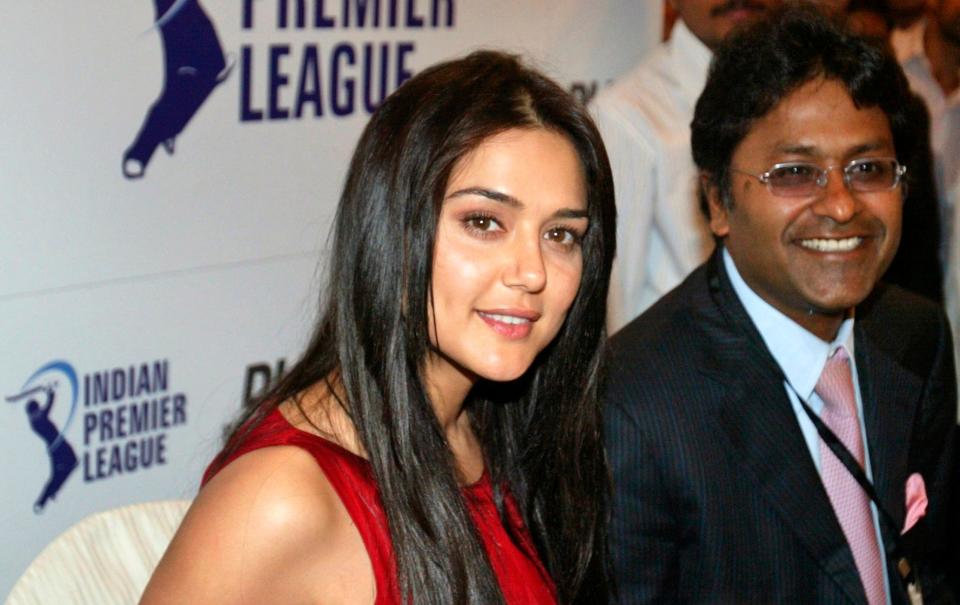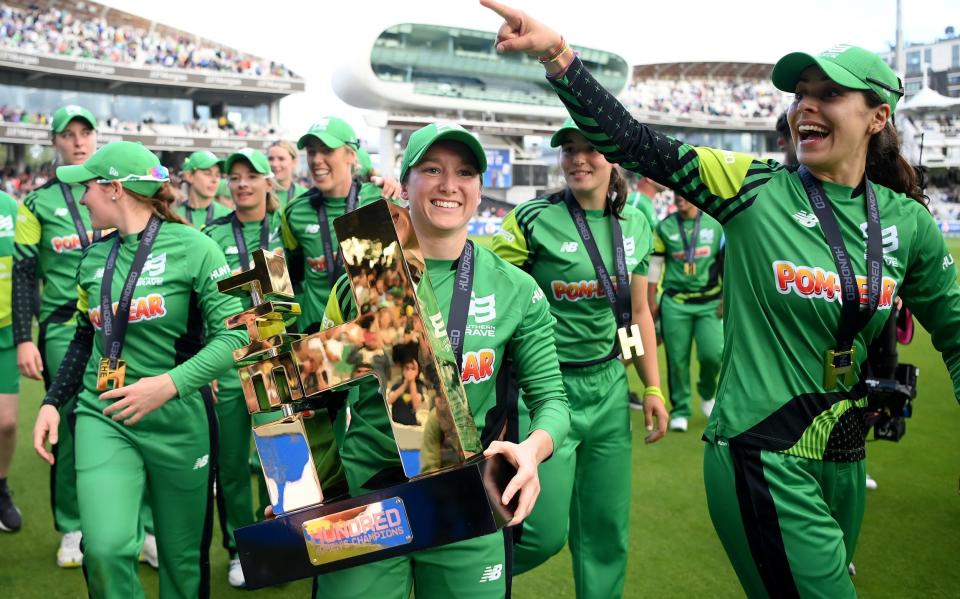English cricket has rejected a proposal for the Hundred from Indian Premier League founder Lalit Modi, who values the competition at $1 billion.
Modi’s representatives met with Vikram Banerjee, chief operating officer of the England and Wales Cricket Board, who is de facto head of the Hundred, and CEO Richard Gould to hammer out a ten-year proposal to buy and finance the Hundred through private investments.
However, Telegraph Sports understands that the ECB will not continue discussions with Modi with a formal offer and figure yet to be put on the table. It is not interested in selling the league as a whole because of fears of losing control over the peak months of the season and fears that dealing with Modi would jeopardize its relationship with the BCCI.
Modi was banned for life by the BCCI in 2013 for “serious misconduct and indiscipline” in connection with bids for two new franchises in 2010. Modi was forced to leave India and has since lived in London.


The ECB last year rejected a similar bid from Bridgepoint Group worth £400 million for a 75 percent stake in the Hundred. At the time, Richard Thompson, the ECB’s president, said he would only consider offers of “a few billion” and since then the ECB has followed a strategy of selling shares in the teams, with the board retaining ownership of the competition.
Modi told Telegraph Sport that he has found investors willing to pump money into a 10-team tournament, but told the ECB that the Hundreds format does not work and should be converted into a Twenty20 competition instead.
He says his league would include a team purse of up to $10 million each season, which would put wages on par with the IPL. Modi estimates the value of the competition at $100 million a year over 10 years and says the franchises should be English-owned and managed, with minimal input from India. He believes that the ECB should not sell more than two franchises to IPL teams so that the English identity is preserved and another version of the IPL is not created.
Modi has been working on his plan for English cricket for the past 18 months and believes its scale would put the league second only to the IPL in terms of financial strength, and that the windfall would guarantee the future of the provinces for a generation . The ECB’s plan to sell shares will, by its own estimate, yield a tenth of what Modi is certain to generate. However, the ECB wants to maintain control over competition and the high summer period.


Modi’s plan would be for the competition to run from July 1 to August 15. “I would give them a guarantee of a billion dollars,” he told Telegraph Sport. “A lot of people contacted me and were interested in supporting it. I made a proposal to the ECB, but there were many conditions attached to it. The Hundred format doesn’t work and only two franchises should be sold to Indian buyers. It will only work if it is an English league and not Indo-centric.”
Modi founded the IPL in 2008 and the latest estimates put its brand value at $10.7 billion, a growth of over 400 percent since its inception. The media rights were sold in 2022 for more than $6 billion.
The ECB believes it can raise £100 million from the sale of shares in the teams and consultations are underway with the provinces to change the constitution to allow private ownership of the eight Hundred clubs.
A hundred questions and answers: How much could it be worth?
How do cricket leagues make money?
In most of the world’s major sports leagues, a significant portion of the money – often 80 percent – comes from broadcast rights around the world. Although Premier League football now earns more from broadcast rights abroad than from domestic broadcast rights, it is an outlier. Other sports leagues, including the T20 leagues and the Hundred, derive a significant portion of their broadcast revenue from domestic rights. It is believed that less than five percent of The Hundred’s revenue comes from foreign TV rights. While leagues have tried to maximize their commercial appeal in India, the Indian board’s ban on players playing in foreign short-form leagues means such attempts have failed.
Why is the Hundred worth so much?
Lalit Modi’s $1 billion proposal for the Hundred reflects what some insiders think the competition could be worth. The tournament currently generates £50 million per year in broadcast revenue, with the hope that this can grow in the coming years. Multinational branding, with teams affiliated with Indian Premier League franchises, is seen as one way the league could grow abroad – although evidence from T20 leagues in South Africa and the UAE, which have been bought by IPL owners, that is not. mixed.
PROFILE
Modi made India a cricket superpower before his exile – now he wants the Hundred
read more
Why are Indian businessmen keen to invest in the Hundred?
IPL owners have already shown their keenness to invest in foreign leagues, buying teams in the Caribbean Premier League, South Africa’s SA20 and the UAE’s International League T20. The multi-team model – similar to that of City Football Group, which owns Man City and a host of other clubs – is attractive because it offers IPL teams a way to keep their brands active for more of the year, with the IPL yourself. for only two months. Owning foreign teams also helps in scouting players and developing coaches: for example, Kieron Pollard, who is now the batting coach of Mumbai Indians, continues to play for the Mumbai franchise in other T20 competitions.
Owning teams in England is seen as particularly attractive. England is the second largest market for the game. Although the global calendar has become much busier, the English summer remains significantly less busy than the English winter, increasing the Hundred’s chances of attracting global attention and attracting leading foreign players. The site’s history – especially Lord’s – clearly appeals to potential owners, some of whom have major business interests in England. The prospects for generating business income on matchdays at English grounds are also much stronger than in poorer economies such as South Africa and the West Indies. Indian owners would also hope to convince the Indian board to eventually allow Indian players to play in the Hundred.